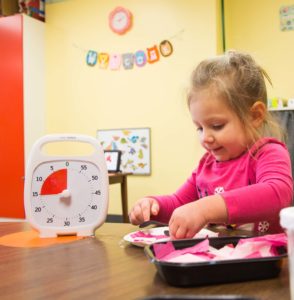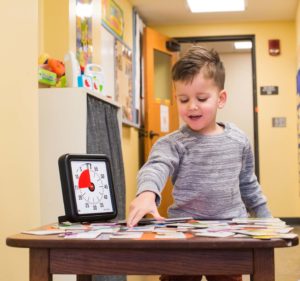A Proven Tool To Increase Self-Regulation / Time Timer
A recent study conducted by the Department of Exceptional Student Education at Florida Atlantic University found that children ages 2-4 years old showed a significant increase in self-regulation skills when the Time Timer was used to facilitate their activity. The children, who were at risk of developmental delays, were observed performing typical individual or group activities such as reading picture books or playing with blocks. When a Time Timer was utilized during their activity, each child’s accuracy and engagement in the activity increased dramatically.
Want to read the whole study?
Or perhaps a non-technical, easy-to-read summary?
Here are some of the highlights.
Time Timer had a positive impact on all children.
The children were more engaged.
“All children showed a dramatic increase in activity engagement while using the Time Timer.“
The children showed increased independence.
“All students increased their accuracy and independence in performing the new self-regulation skill, and increased their play and early literacy engagement in classroom and public settings.“
The children retained their new self-regulation skills.
“When Elijah’s LBBI [study materials] were removed, he continued to use the Time Timer accurately and independently across the next six days.”

